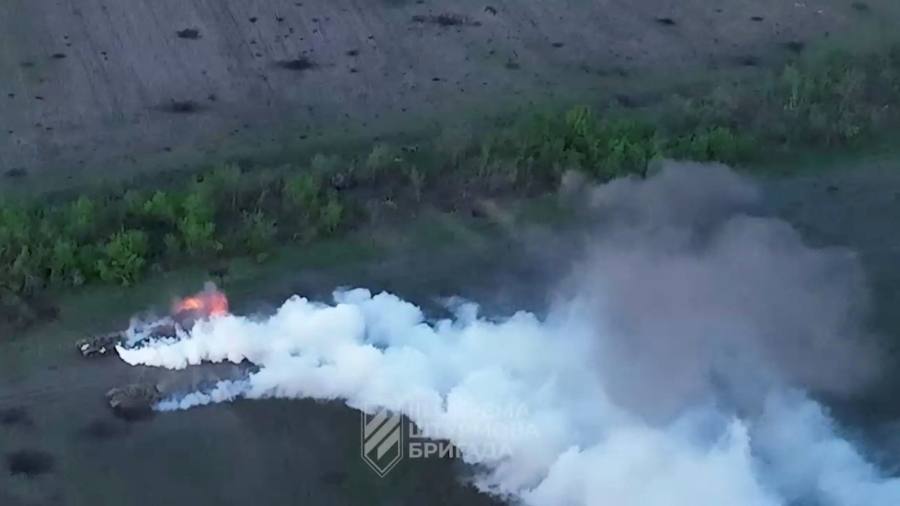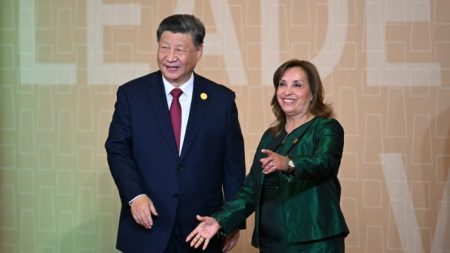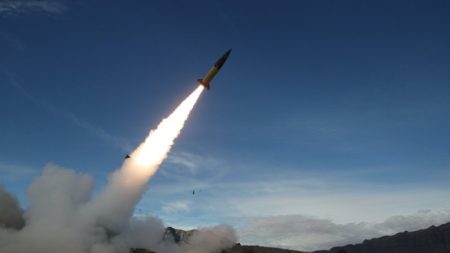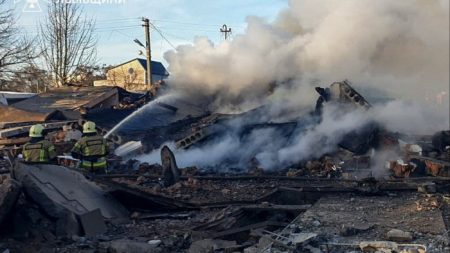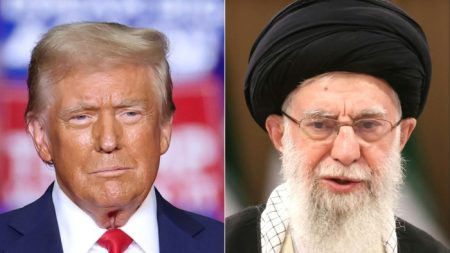Ukraine’s armed forces stepped up attacks against multiple Russian positions in the east of the country as Kyiv’s long-awaited counter-offensive entered a new phase after weeks of preparatory operations.
Ukrainian officials refused to discuss whether the uptick in offensive activity in Donetsk province over the weekend and into Monday amounted to the start of full-blown counter-offensive. But deputy defence minister Hanna Maliar admitted “in some directions we are moving to offensive actions”.
Maliar said Bakhmut, now largely under Russian control, remained the “epicentre”, with Ukrainian forces advancing along high ground flanking the city.
“I am grateful to each of our soldiers, all our defenders, who gave us exactly the news that we expected this day . . . [On the] Bakhmut axis — well done, warriors!” Volodymyr Zelenskyy, Ukraine’s president, said in his evening video address to the nation.
“We see how hysterically Russia perceives every step we take there, every position we take,” Zelenskyy said adding: “The enemy knows that Ukraine will win.”
Russian officials and military bloggers said Ukrainian forces intensified their offensive in multiple places along the frontline, although their claims could not be independently verified.
Russia’s defence ministry claimed Ukrainian troops attacked in five locations in the south of Donetsk province on Sunday, using six mechanised and two tank battalions.
Igor Konashenkov, Russia’s defence ministry spokesperson, said the multipronged attack “did not achieve its goals” and Russia’s army killed 250 Ukrainian soldiers. Kyiv officials described Moscow’s claims as an “informational and psychological operation” intended to “demoralise Ukrainians”.
Kyiv has been planning a counter-offensive to win back territory from Russian occupation for several months, backed by supplies of advanced western weaponry such as Storm Shadow long-range missiles.
There has been a constant push and pull along the front line in recent weeks, with no decisive breakthroughs or assaults by either side.
However, there has been a notable change of tone among senior western officials, who have appeared increasingly sceptical about Russian military capabilities. Antony Blinken, US secretary of state, last week made a clear case for an outright Ukrainian victory based on “territorial integrity” in a speech that also disparaged Russia’s military “as the second-strongest in Ukraine”.
Ben Wallace, Britain’s defence secretary, meanwhile said lack of Russian military supplies meant there was a real possibility Ukrainian forces could retake Crimea. “What we’ve seen on the battlefield is that, if you punch Russian forces in the wrong place, they’ll actually collapse,” he said in an interview with the Washington Post.
Kyiv has insisted it will not announce any major operations in advance, urging caution about reporting news on the counter-offensive from the front.
A Ukrainian military social media video posted this weekend showed soldiers holding their fingers up to their lips urging “silence” about military operations.
On the Russian side, Alexander Khodakovsky, commander of a Kremlin-backed volunteer battalion based in the Donetsk region, said Ukraine had attempted a breakthrough and captured one position, but “took significant losses” on Sunday.
He added the attack was “not in itself the promised counter-offensive” but predicted Ukraine could send more units as reinforcement if the push was successful.
Russia’s defence ministry has often made inflated claims of its success. Its PR-conscious armed forces have been under fire in recent weeks after weak Russian defences along the frontline in Belgorod region were exposed.
Viacheslav Gladkov, Belgorod region’s governor, said Russian authorities “could not enter” the village of Novaya Tavolzhanka near the border after Ukraine-backed Russian militias claimed to have captured it, in effect accepting their control over the area.
“I know there were about 100 people there . . . but the shelling of the last two days is not letting us clarify that information,” Gladkov said during a social media livestream. “I hope that we can get back to convincing people to leave the town as soon as the situation changes.”
Yevgeny Prigozhin, founder of the notorious paramilitary group Wagner, has also stepped up a months-long public spat with the Russian defence ministry’s leadership.
The ministry said the invasion’s chief commander, Valery Gerasimov, who has been one of the main targets of Prigozhin’s ire, was “at one of the frontline command points” during the fighting.
Prigozhin on Monday claimed Russian regular forces had lost part of a village called Berkhivka to the north-west of Bakhmut. Such a move by Ukrainian troops could potentially result in the semi-encirclement of the bombed-out eastern city that Russian forces have not fully captured despite nine months of battles and huge losses.
Describing the development as a “disgrace”, Prigozhin addressed Gerasimov and defence minister Sergei Shoigu in a social media post, saying: “I urge you to come to the front, raise the army with pistols so that they advance.”
Colonel-General Oleksandr Syrsky, commander of Ukraine’s ground forces, posted a video on social media on Monday showing Ukrainian tanks and infantry vehicles firing on Russian positions near Bakhmut. “Tanks of the third separate assault brigade destroyed the position with the Russians during the assault on enemy positions in the Bakhmut direction,” Syrsky wrote. “The defence forces are working. We continue to move forward,” he added.
Additional reporting by John Paul Rathbone in London
Read the full article here



